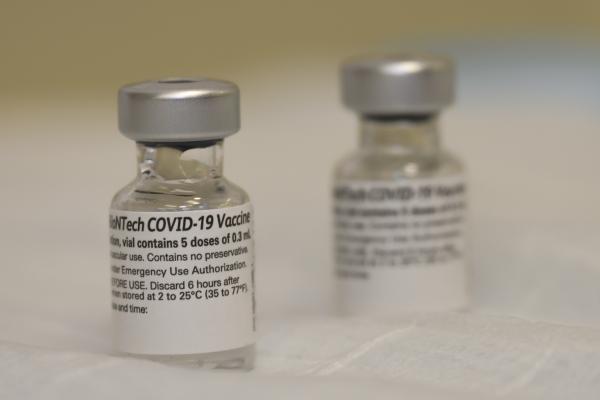Recent Biden Administration initiatives to boost the “bioeconomy” are an acknowledgment that the government’s current biotechnology regulatory policies are unnecessarily slowing the development of important products and processes. They propose to correct that failure with bureaucratic make-work projects and the squandering of tax dollars.
President Biden’s September 12 “Executive Order 14081 on Advancing Biotechnology and Biomanufacturing” seeks to grow the “bioeconomy” with new industrial policy. Bioeconomy is a made-up marketing term that encompasses the commercialized products and processes that use “biotechnology” (another made-up marketing term), which uses the newer techniques of genetic modification such as recombinant DNA technology, or “gene splicing,” and genome editing employing techniques such as CRISPR, to modify plants, microorganisms, animals, and even humans.
The executive order launches “a whole-of-government approach to advance biotechnology and biomanufacturing towards innovative solutions in health, climate change, energy, food security, agriculture, supply chain resilience, and national and economic security.”
However, the executive order is likely to be counterproductive with its many bureaucratic requirements, initiatives, and busy work projects. Fifty years of experience with biotechnology should have taught us that its scientific and technological successes have benefited most from three conditions: government funding of basic, pre-commercial research that is beyond the capability of a single company; a stable economic environment conducive to investment; and the avoidance of unreasonable regulatory restraints.
The Administration’s executive order begins with overarching, aspirational platitudes, such as “principles of equity, ethics, safety, and security that enable access to technologies, processes, and products in a manner that benefits all Americans….” It proceeds to create a bureaucratic maze of new initiatives at a veritable alphabet soup of acronymic federal agencies tasked to hold meetings, prepare reports, and, well, you name it: “Within 2 years of the date of this order, agencies at which recommendations are directed in the implementation plan required under subsection (c) of this section shall report to the Director of OMB, the APNSA, the APEP, the APDP, and the Director of OSTP on measures taken and resources allocated….”
The executive order then drifts towards what sounds like a push for even more onerous regulation by requiring that the government “launch a Biosafety and Biosecurity Innovation Initiative, which shall seek to reduce biological risks associated with advances in biotechnology, biomanufacturing, and the bioeconomy.”
As though this wasn’t bad enough on its own, it duplicates a statutory directive that the National Science Foundation and National Academies of Sciences, Engineering, and Medicine “conduct a review, and make recommendations concerning, the ethical, legal, environmental, safety, security, and other appropriate societal issues… related to engineering biology research and development” because “we must take concrete steps to reduce biological risks associated with advances in biotechnology.”
The current focus on issues like risk, safety, ethics, and equity reinvents the wheel. It ignores the last half century of our experience with biotechnology – specifically, the many exacting analyses of the risks and benefits of its research and products, including the landmark 1986 Coordinated Framework for the Regulation of Biotechnology, the 1989 U.S. National Research Council paper, and other studies which concluded that the new genetic engineering techniques are extensions, or refinements, of earlier, less precise, less predictable methods.
And yet, despite the clear and longstanding guidance from the scientific community, the involved agencies – FDA, EPA, and USDA -- have consistently over-regulated and blundered, causing unnecessary delays and adding huge, incremental costs to research and development when the newest, most precise and most predictable techniques were used. These burdens limit the participation of academic and small commercial entities that might otherwise be willing and able to participate, thereby stifling U.S. competitiveness.
There is no justification for still more reviews -- especially when they are packed with superfluous elements -- that could increase the regulatory stranglehold on the bioeconomy.
The Biden Administration should focus on regulatory and other reforms that would eliminate unnecessary, unscientific regulation and actually stimulate the growth of the bioeconomy.
Henry Miller, a physician and molecular biologist, is the Glenn Swogger Distinguished Fellow at the American Council on Science and Health. He was the founding director of the FDA’s Office of Biotechnology. John Cohrssen is an attorney who has served in several government posts in both the executive and legislative branches of government, including as legal counsel for the White House Working Group responsible for the Coordinated Framework for the Regulation of Biotechnology.




